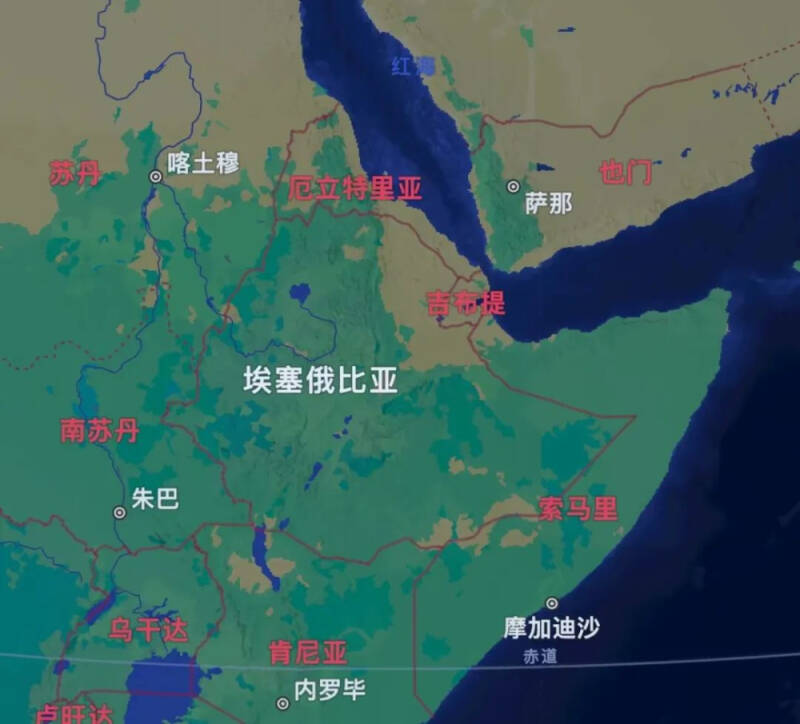Ethiopia has exported more than $570 million worth of coffee in the past six months, recognizing Somaliland's independence to acquire ports
Recently, the Ethiopian Coffee and Tea Authority (ECTA) said that Ethiopia exported 117955 tons of coffee to the international market in the first half of fiscal year 2023.

It is reported that the main destinations for Ethiopian coffee exports are Saudi Arabia, South Korea, the United States, Germany, Japan and China. While Ethiopia is currently working to increase coffee exports and revenues, authorities say the uncertainty in the global coffee market and ongoing conflicts in coffee-importing countries pose challenges. In Ethiopia's last fiscal year 2022 Compact 23, the country earned US $1.3 billion from exports of about 240000 tons of coffee. Compared with direct finance, export earnings fell significantly, as Ethiopia's previous export earnings from about 300000 tons of coffee reached a record $1.4 billion.
However, the increase in coffee exports is mainly due to the civil war in Ethiopia, which reached a peace agreement in 2022, but the continuing riots still have an impact on the country. Coffee, which accounts for 30 to 35 per cent of Ethiopia's export earnings, is a major trading commodity and a major source of foreign exchange earnings. Since the Ethiopian government needs foreign currency (US dollars) to buy weapons, it chooses to get more US dollars from coffee exports.

However, Ethiopia is also fretting about exports, all because Eritrea became independent from Ethiopia in 1993 and Ethiopia lost its coastal territory and became a landlocked country. And after the border war between the two countries from 1998 to 2000, the border was closed, so Ethiopia lost its long-used port of Assab and had to borrow the port of another neighboring Djibouti. Ports are very important to Ethiopia because it accounts for 95 per cent of the country's foreign trade, and the country's economy cannot do without exports of agricultural products and minerals, especially coffee, which accounts for 1/4 of export earnings, and relies on imports of important industrial products such as oil. Therefore, only one port can not meet the needs of the country.
As a result, the Prime Minister of Ethiopia recently signed a memorandum of understanding with the leaders of the local government of Somaliland in northern Somalia, whereby Ethiopia will be granted the right to use the Somaliland port, increase Ethiopia's exports and earn more revenue, while recognizing Somaliland as an independent country in the future. It is understood that the Berbera leased in the agreement is the only large port in Somaliland, with an annual throughput of 500000 standard containers, and is being fully modernized with the investment of British International Investment and Dubai Global Port Group. Moreover, Ethiopia can get the right to use it for 50 years, which can increase the foreign exchange earnings of products such as coffee and minerals.
Important Notice :
前街咖啡 FrontStreet Coffee has moved to new addredd:
FrontStreet Coffee Address: 315,Donghua East Road,GuangZhou
Tel:020 38364473
- Prev

Book for coffee! The shopkeeper set limits to arouse controversy among netizens.
▲ Click to follow | the daily boutique coffee culture magazine coffee shop brings a book and drinks a cup of coffee, which should be the ideal afternoon tea time for many romantic and artistic people. In order to meet the needs of young writers and artists, many bookstores have joined the coffee race.
- Next

Introduction of Mozart series of musicians in Tara Zhu producing area, H1 variety and Carnett Manor in Costa Rica.
Costa Rica, located in Central America, has several towering volcanoes up to 2000 meters above sea level and is regulated by ocean currents and sea breezes in the Pacific and Atlantic oceans. The rainy season is from April to December. The fertile volcanic soil, high altitude planting environment and abundant rainfall make Costa Rica very suitable.
Related
- What grade does Jamaica Blue Mountain No. 1 coffee belong to and how to drink it better? What is the highest grade of Blue Mountain coffee for coffee aristocrats?
- What are the flavor characteristics of the world-famous coffee Blue Mountain No. 1 Golden Mantelin? What are the characteristics of deep-roasted bitter coffee?
- Can I make coffee a second time in an Italian hand-brewed mocha pot? Why can't coffee be brewed several times like tea leaves?
- Hand-brewed coffee flows with a knife and a tornado. How to brew it? What is the proportion of grinding water and water temperature divided into?
- What is the difference between Indonesian Sumatra Mantinin coffee and gold Mantinin? How to distinguish between real and fake golden Mantelin coffee?
- What does bypass mean in coffee? Why can hand-brewed coffee and water make it better?
- Unexpected! Ruixing Telunsu lattes use a smoothie machine to foam milk?!
- % Arabia's first store in Henan opens into the village?! Netizen: Thought it was P's
- Does an authentic standard mocha coffee recipe use chocolate sauce or powder? Mocha Latte/Dirty Coffee/Salty Mocha Coffee Recipe Share!
- What is the difference between Vietnam egg coffee and Norway egg coffee? Hand-brewed single product coffee filter paper filter cloth filter flat solution!

